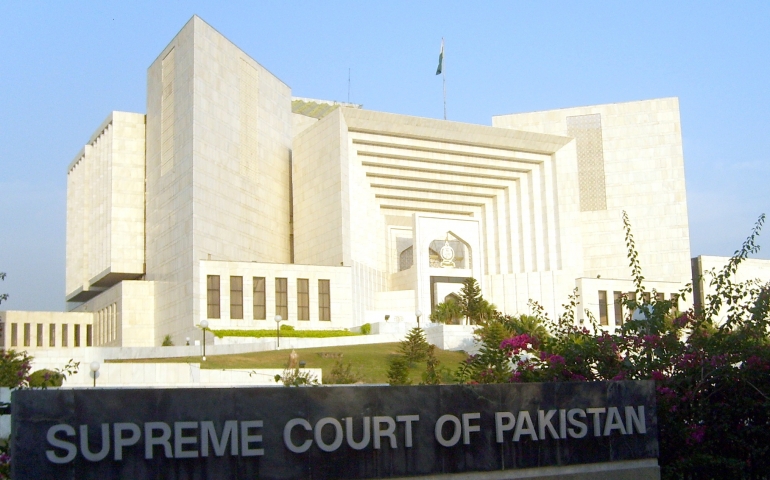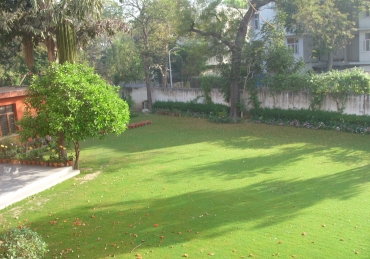Inheritance of Grandchildren and the Judgement of the Supreme Court of Pakistan
Question
The Supreme Court of Pakistan has ruled that if a person’s son or daughter
dies first, the children of the deceased son or daughter (the grandchildren) will receive the same share in the inheritance of their grandparent, as their own pre-deceased parent would have received if they were alive.
A lady lived a long life and was survived by two sons and a daughter. One of her daughters passed away some years before her mother’s death. This deceased daughter has four children who are the grandchildren of the lady. Our questions are:
- How should the inheritance of the deceased lady be distributed among the heirs in the given situation?
- Will the maternal grandchildren in this situation have any share in their grandmother’s inheritance?
- If the grandchildren do not inherit in this scenario, is this based on the Ḥanafī school only or is it the same rule in the other three schools?
- Assuming that the Supreme Court of Pakistan grants the maternal grandchildren in the aforesaid situation the right to inheritance, and assuming that this clashes with the authoritative Shariah ruling, if a person or family chooses to abide by the Supreme Court’s ruling, would it be sinful to do so, given that observance of the law of the land is also a Shariah mandate?
بسم الله الرحمن الرحیم
Answer
- The lady’s inheritance will be distributed as follows: Each son will receive 2/5th (40%) and the daughter will receive 1/5th (20%). This assumes the lady has no surviving parents or husband.
- The maternal grandchildren in this scenario do not inherit from the grandmother. If the grandmother made a Waṣiyyah (bequest) for them, this is valid in up to one third of her assets.
- The grandchildren not inheriting in this scenario is the unanimous position of all four schools of thought. In fact, there is consensus of scholars upon this, as mentioned by Imam Ibn al-Mundhir (d. 318/930-1), ʿAllāmah Ibn Baṭṭāl (d. 449/1057), Ḥāfiẓ Ibn al-Mulaqqin (d. 804/1401), ʿAllāmah ʿAynī (d. 855/1451) and others.
- Observance of the law of the land is subject to it not violating the divine laws. The Prophet ﷺ said, “It is necessary upon a Muslim person to listen and obey [the Imam] in what he likes and dislikes, as long as he is not instructed to do a sinful thing. If he is instructed to do a sinful thing, then there is no listening or obedience” (Ṣaḥīḥ al-Bukhārī, 7144). Therefore, if the law of the land contradicts with the Shariah, the Shariah takes precedence. Thus, in this scenario, if the Supreme Court does indeed rule against the Shariah, and the family abide by this, they will be sinful.
Finally, on the issue of why the grandchildren are not entitled to inheritance in this scenario, please refer to our earlier answer: https://islamicportal.co.uk/wasiyyah-and-inheritance-query-grandchildrens-inheritance/.
جاء في الموطأ (١٨٥٠): مالك: إن الأمر المجتمع عليه عندنا والذي أدركت عليه أهل العلم ببلدنا في فرائض المواريث أن ميراث الولد من والدهم أو والدتهم، أنه إذا توفي الأب أو الأم، وترك ولدا رجالا ونساء. فللذكر مثل حظ الأنثيين. ثم قال بعد أسطر: فإن اجتمع الولد للصلب وولد الابن فكان في الولد للصلب ذكر، فإنه لا ميراث معه لأحد من ولد الابن، انتهى. وقال البخاري في الصحيح (٨/١٥١): وقال زيد: ولد الأبناء بمنزلة الولد إذا لم يكن دونهم ولد، ذكرهم كذكرهم، وأنثاهم كأنثاهم، يرثون كما يرثون، ويحجبون كما يحجبون، ولا يرث ولد الابن مع الابن، انتهى. قال ابن بطال في شرح البخاري (٨/٣٤٩) وتبعه ابن الملقن في التوضيح (٣٠/٤٧٣) والعيني في عمدة القاري (٢٣/٢٣٨): قول زيد هذا إجماع، انتهى. وقال ابن المنذر في الإشراف (٤/٣١٧): أجمع أهل العلم على أن بني الابن وبنات الابن لا يرثون مع بين الصلب شيئا، انتهى۔
وقال البخاري في الصحيح (٩/٦٢): باب السمع والطاعة للإمام ما لم تكن معصية. وروى عن ابن مسعود رفعه: السمع والطاعة على المرء المسلم فيما أحب وكره ما لم يؤمر بمعصية، فإذا أمر بمعصية فلا سمع ولا طاعة۔
Allah knows best
Yusuf Shabbir
12 Rabīʿ al-Thānī 1443 / 17 November 2021
Approved by: Mufti Shabbir Ahmed and Mufti Muhammad Tahir







